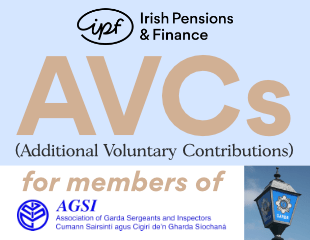The Minister for Justice and Equality, Frances Fitzgerald TD has today commenced the Fines (Payment and Recovery) Act 2014 marking an historic day for the fines payment system in Ireland.
Minister Fitzgerald remarked that the Fines (Payment and Recovery) Act 2014 delivers on the Programme for Government commitment to introduce attachment of earnings to recover unpaid fines. Under this Act the law has been radically reformed in relation to the payment and recovery of fines.
The Minister stated that, “The Act provides an appropriate response to the problems of the refusal or failure of some people to pay fines and the inappropriateness of imprisonment as the automatic response where this happens. We now have a system that is logical and proportionate”.
The Act provides that –
· Fines will be set at a level that takes into account the person’s financial circumstances;
· All fines over €100 can be paid by instalments with the procedure for this to be provided for by way of regulation;
· If a person defaults, he or she is brought back to court where the judge first considers making an Attachment Order;
· If it is not appropriate to make an Attachment Order, the judge can make either a Recovery Order, where the fine is more than €500 or a Community Service Order;
· Where either an Attachment Order or a Recovery Order are made and the fine is still not recovered in full, the court can make a Community Service Order; and
· Imprisonment will only apply where it is not appropriate to make an Attachment Order, a Recovery Order or Community Service Order or where a Community Service Order is made and the person fails to comply with it.
· The appropriate period of imprisonment shall be determined by the amount of the fine which remains unpaid.
The Minister added, “I am confident that with the changes to the fines system that will flow from the implementation of the Act, the number of persons imprisoned for the non-payment of fines in the future will be greatly reduced.”
Minister Fitzgerald acknowledged the scale of the necessary changes to IT and administrative systems including tendering requirements in implementing the Act and the significant challenge that this posed. The Minister concluded by thanking the Courts Service for its diligent work and welcomed An Post on board as the fines collection service provider.
Ends
Editors Notes
The aim of the Fines (Payment and Recovery) Act 2014 is to seek to effectively eliminate, in so far as is possible, the option of imprisonment as a sanction for fine default. The Act provides for the payment of fines by instalments and this is to be provided for by way of regulation. The legislation provides that where a person fails to pay a fine by the due date the Court may make an attachment order to earnings as a means of recovering an unpaid fine. The Act further provides that the appointment of a receiver to recover an unpaid fine will be an option available to the Court. Where a recovery order or an attachment order has been imposed but where the fine or a portion of the fine remains outstanding, a community service order may be made as an alternative to prison.







